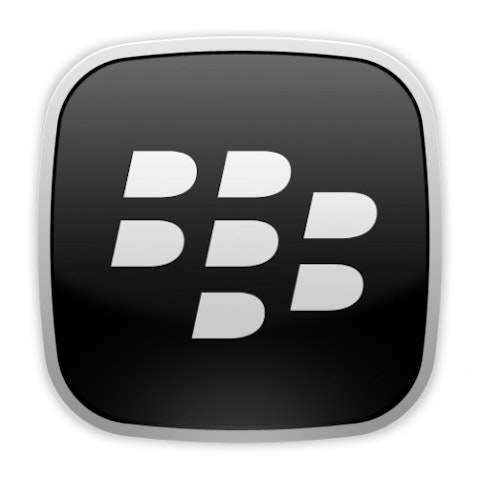Last Wednesday, Research In Motion Ltd (NASDAQ:BBRY), formerly known as Research In Motion, unveiled its new generation of phones, which feature the new BB10 operating system. Observers did not seem particularly impressed. My Foolish colleague Anders Bylund wrote, “I expected the new line of BlackBerry 10 phones to be masterpieces of truly modern hardware with some unexpected wrinkles thrown in for good measure. But what we got looks a lot like Samsung’s finest handset from last year.” The apparent letdown halted BlackBerry’s recent rally in its tracks. Shares slid from a 52-week high at $18.32 on Jan. 24 to less than $13 on Jan. 31.
While Blackberry’s new Z10 and Q10 smartphones are not revolutionary, they are still very solid entries in the market. The browsing experience is leaps and bounds better than on previous BlackBerry phones. Moreover, BB10 provides a differentiated experience through software features such as the “BlackBerry Hub” (a unified page for messages, emails, texts, social media updates, etc.) and “Blackberry Balance” (a feature to separate work and personal data and apps).

BlackBerry’s fall
Much of the recent pessimism surrounding BlackBerry is the result of an understandable “show-me” attitude among investors. The company was the clear smartphone leader five years ago, but failed to react to Apple Inc. (NASDAQ:AAPL)‘s entry into the market with the iPhone. As the iPhone and phones running Google Inc (NASDAQ:GOOG)‘s Android OS vastly expanded the smartphone market, BlackBerry missed out on the growth opportunity. Most notably, in the past four quarters, the total number of BlackBerry users has grown by only 6%.
Much has been made of BlackBerry’s market share losses during the past two years. However, those statistics should be taken with a grain of salt. BlackBerry has been trying to compete with an outdated OS (BB7), and it has been widely known for more than a year that a new QNX-based OS was on its way. As a result, current BlackBerry users have delayed their upgrades and potential “conquests” have been waiting for the new OS. The result is that BlackBerry sales dropped precipitously in 2012, even though the Blackberry user base actually grew slightly.
According to IDC, BlackBerry shipped 32.5 million smartphones in 2012, down 36.4% year over year. This resulted in the company’s market share contracting from 10.3% to 4.6%. However, BlackBerry’s market share is much stronger when measured by the number of subscribers. This better reflects the brand’s strength, as customers who have stuck with BlackBerry this long are likely to upgrade to the new BB10 phones.
The coming upgrade cycle
In the U.S., BlackBerry’s share of smartphone users was still 7.3% in November 2012, despite Apple’s massive iPhone sales last quarter. In the U.K., BlackBerry still has more than 8 million subscribers out of a total market of 35 million to 40 million, putting its market share around 20%. Lastly, as of August 2012, BlackBerry had even higher market share in its home market of Canada, at 27%. These three countries — BlackBerry’s largest markets — have accounted for 40%-50% of the company’s revenue in recent years.




